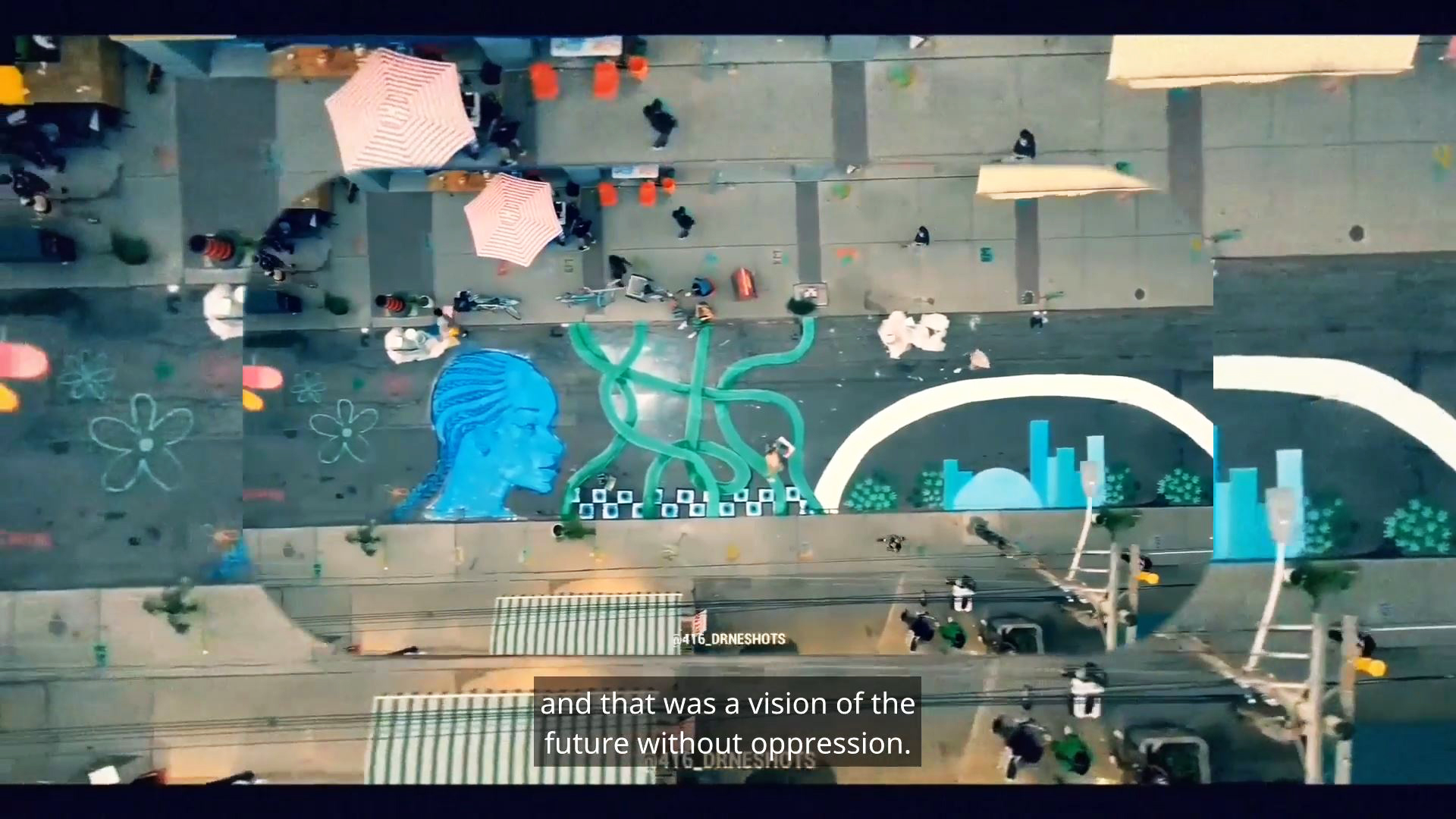Approach
Overview
Culture for what’s coming.
Our work combines cultural research and prototyping with immersive compelling experiences for audiences and the public. Our research looks into the role of culture in dealing with present and future technological, social, and ecological volatility. Our artistic interventions and infrastructure offer a sense of wonder and mystery in a range of contexts both online and offline. We show possible futures so that we might find ways of stepping into them.
We realize these intentions by occupying and experimenting with emerging technologies such as artificial intelligence, extended reality, projection, additive manufacturing, and more.
UKAI is globally recognized for our work in exploring how the moral assumptions of technological development shape our culture and how different positions can generate other choices and better conversations.
What are we responding to?
We are going through a period of unprecedented changes. Artificial intelligence, climate damage, and rising authoritarianism represent three identifiable shifts. Others are likely lurking just out of sight.
Different groups will insist that they hold special, privileged knowledge of what these changes mean. Social media encourages us to take sides, to be comforted in our righteousness.
As human beings we can’t help but make meaning out of the experiences of our lives. We can allow for pre-existing ideologies to do the work of telling us what’s going on. Or, we can do the work ourselves of assembling from events some coherent picture, and then become answerable for what happens next.
Art involves an offer and an audience. Every artwork is a terrain of uncertain governance. We bring our bodies, our territories, our stories to the task and we participate in an endless green thread of interpretation and re-interpretation.
Life is simpler when there are two or three stories to choose from. However, there are infinite stories we can tell, as varied as we are.
The risk is letting things get rigid and this rigidity is what we are responding to.
What are we bringing to the creative sector?
Albert Camus argued that the unfettered pursuit of justice leads to totalitarianism, of freedom to terror. Too often, he argued, we see these pursuits as being in opposition. Gains in one necessitate losses in the other.
The artist, he continues, must imagine and share potential reconfigurations of freedom and justice that suggest a world within which we might choose to live.
To do this work, all the changes we are experiencing need to be dialogized and relativized. They need to be in conversation with the world around them and not trapped inside rigid ideologies where their meaning is fixed and unchanging.
We bring experiments in modes of production and in artistic creation. These experiments are attempts to novelize crises and to invite audiences into durational and inhabited works that are in conversation with both the contingent and the global.
UKAI’s work involves both research and application:
We have worked with partners across Canada, in Egypt, Mexico, Malawi, China, Japan, Switzerland, Germany, Nigeria, Hong Kong, and in partnership with Indigenous communities across Turtle Island. We are committed to occupying technologies and turning them toward other values and goals.
Research: Our research questions the assumptions on which society operates. Most technologies are deployed in service to the moral positions of capitalism (bigger and/or faster). We then blame the tools rather than how they are being used. Our research explores what happens when we turn these tools over to other values and assumptions.
Application: Cultural prototyping allows us to imagine multiple possible futures. UKAI works with diverse creators to prototype potential pathways forward based on our research-based work. We are less interested in finding the “right” approach, and more interested in ensuring that there are an abundance of paths available to us as we navigate a complex and volatile future.
This work also provides creators that face barriers to access with opportunities to work with emerging technologies and imagine worlds that otherwise would remain hidden. We bring these same intentions to internal and partner projects – users of all ages and backgrounds will engage with visually compelling experiences that invite them into conversation with broader changes in our society and culture.
Our programming:
AI Workshops and Residencies
UKAI has been offering workshops on AI for creators and cultural producers locally in Toronto and will be delivering programming nationally in 2023 and beyond through the generous support of the Canada Council for the Arts.
The focus is on developing projects and methodologies that not only engage with the current technological landscape but also anticipate future cultural and social shifts influenced by AI and other emerging technologies. Through immersive experiences, workshops, and collaborative projects, UKAI Projects seeks to interrogate and expand the boundaries of artistic and cultural practices in the age of digital transformation.
Other Technical Workshops and Residencies
UKAI Projects offers technical workshops and residencies rooted in a commitment to experimental, participatory, and immersive experiences. Such workshops and residencies are part of UKAI’s broader mission to prototype and research culture for the uncertain future we face. The emphasis on collaboration, both in artistic creation and community engagement, reflects a balanced approach to addressing immediate challenges while imagining future possibilities.
This stream of programming, deeply influenced by the tradition of the Spanish anarchist schools, underlines an emphasis on self-governance, collective learning, and the development of autonomous spaces for education and cultural expression. Through this, UKAI reinforces its dedication to creating spaces that are not only about the transmission of knowledge but also about fostering communities of practice that are responsive, adaptive, and creative in the face of ongoing social and environmental transformations.

